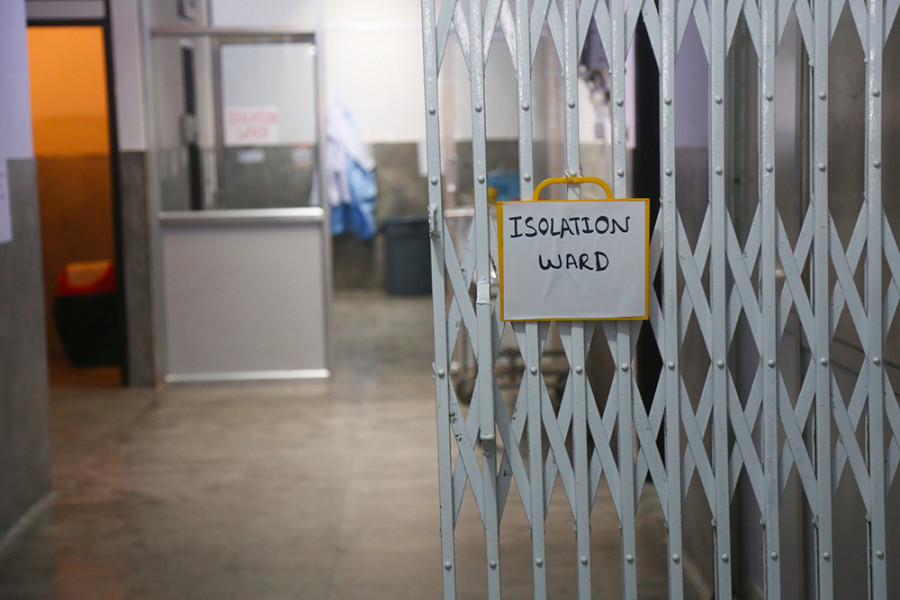Health
Health Ministry says 10 days enough for Covid quarantine, isolation
Public health experts say that such an advisory is meaningless as the government has halted all other measures to fight Covid-19, including testing and contact tracing.
Arjun Poudel
The Ministry of Health and Population says that 10 days of isolation or quarantine is sufficient for infected patients or suspects to carry on with their normal lives.
The new advisory was in line with the result of studies carried out in various countries, according to officials. But public health experts are not convinced.
“Several studies carried out in various countries show that infected patients, if they are asymptomatic, do not pass the virus on after nine days,” Dr Samir Kumar Adhikar, joint spokesperson for the Health Ministry told the Post. “We have asked symptomatic patients to return to their daily lives three days after their symptoms disappear.”
Earlier too, the ministry had directed hospitals designated for treatment of Covid-19 to discharge patients after 10 days so that other patients could benefit from treatment and care.
According to Adhikari, hospitals as well as institutional isolation and quarantine facilities can discharge patients in 10 days, and doing so doesn’t require a negative polymerase chain reaction test result.
“Additional tests are also not required to discharge patients or for the patients to come out of their home isolation,” he added. “Other countries are also doing the same.”
Public health experts, however, said that such an advisory would work only if all measures needed for containment were in place across the country.
“First of all, we do not know who is infected. Secondly, we have stopped contact tracing,” Dr Sushilnath Pyakurel, former acting secretary at the Health Ministry, told the Post. “Without knowing their infection status, people are moving freely in society.”
The Cabinet on October 5 had decided to provide free testing and treatment only to those who can’t afford to pay, frontline health workers, security personnel and cleaning staff. The decision was enforced by the Health Ministry from October 17.
After the implementation of the decision, contact tracing, which was never done effectively, came to a grinding halt. Swab samples collected by the local levels were destroyed even without testing.
After a Supreme Court’s ruling, the government is obliged to provide free testing and treatment to all infected patients. But it has decided to test and treat only “symptomatic” patients, as defined in the revised guidelines.
“The new advisory was issued just for the sake of it,” Dr Baburam Marasini, former director at the Epidemiology and Disease Control Division, told the Post. “As the government has given up on its responsibilities, new advisories can’t achieve anything.”
The advisory would have had some meaning, had the authorities continued contact tracing, monitored infected people placed in home isolation and stepped up surveillance to monitor the infection status in society, said Marasini.
With the government halting free tests and contact tracing, the number of new coronavirus cases went up by several folds. These days, new reported cases of infection have declined, but doctors suspect that it might be the result of a decline in the number of polymerase chain reaction tests performed in the country.
Doctors involved in the treatment of Covid-19 patients said patients are seeking tests only after becoming seriously ill. This has increased the disease’s death rate and added pressure on the intensive care units and ventilators.
“If someone really thinks the risk of infection has declined, they need to come to the Tribhuvan University Teaching Hospital and see,” Dr Niraj Bam, associate professor at the Institute of Medicine and a chest physician told the Post. “Patients have to wait several days for intensive care unit beds at our hospital.”




 18.12°C Kathmandu
18.12°C Kathmandu















